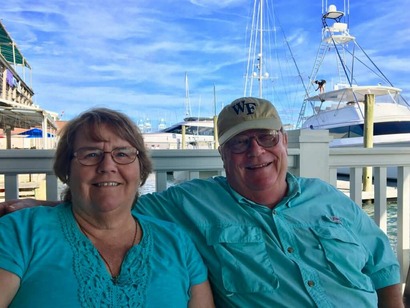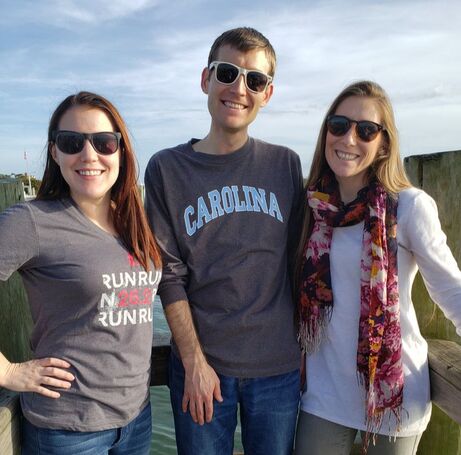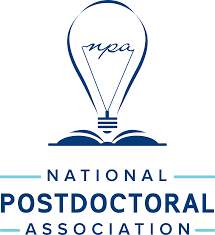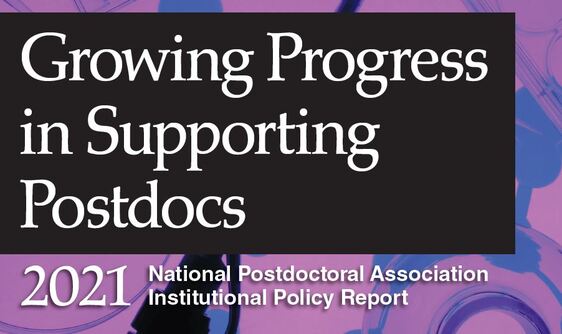In Fall 2018, I started writing a series of pieces for the NIH Broadening Experiences in Scientific Training (BEST) Student/Postdoc Blog. As these pieces are no longer accessible online, I wanted to re-share them in a continuing series NIH BEST Blog Rewind. Here, I will add some additional thoughts to what was originally authored in 2019, denoted in bold (dark red) throughout the piece.
Original Publication Date: March 2019 NEW Perspectives, Comments, & Insights
Part of a series revisiting my NIH BEST Blog pieces.
We hear this advice all the time and think, yeah, it would be great to find a career one is passionate about, that makes one happy, pays one well, and fits one’s skill set and interests. But is it reasonable to expect this out of one, single job? Maybe, but we Americans are, too often, allowing our careers to define us (termed “workism” in this Atlantic piece and see also this piece by the New York Times), which can be problematic.
The challenges associated with the COVID-19 pandemic that have persisted over the past 13+ months are many and further highlight the fact that work should never come first. People have had to juggle many priorities this past year:
- Trying to stay healthy, physically & mentally, in the face of so many unknowns (though perhaps that is changing with vaccines rolling out at higher numbers)
- Taking care of loved ones, physically & mentally, sometimes at a distance
- Assisting their children with virtual learning
- Striving to stay "present" in their work while often working virtually and juggling the priorities mentioned above
- Having to decide that trying to maintain a job and balance the priorities above is not feasible and needing to take a step back from their career (a major issue for female workers this past year; see also)
- Setting boundaries between "work" and "home" when you work from home, etc...
By autonomy, I mean feeling in control of your situation in life, work, etc. Autonomy in terms of work means not feeling micromanaged in your job, having the ability to prioritize your schedule, and choosing to do things in an order and manner that work for you.
I can say in my current position that I have a lot of autonomy: I decide how to prioritize and order my day, the tasks I need to accomplish, and my larger goals for the Office of Postdoctoral Affairs at North Carolina State University. This is great and a huge plus for my current role.
Now, it isn’t like I have complete autonomy and one shouldn’t expect such autonomy, unless you are self-employed and, thus, your own boss. In my current role, there are still somewhat mundane tasks that I have to do.
Over the past year, my administrative load has INCREASED by at least 30% as we now have additional processes that must be undertaken to hire postdocs given UNC System-wide restrictions on new hires. There have also been more requests by faculty to extend postdoctoral appointments past our 5-year limit this academic year. I have worked to accommodate these requests as these are unprecedented times we are living through and pauses to research projects have necessitated a need for many postdocs to stay in their position longer. In addition, many faculty advisors want to shield their postdocs from a tough job market or a need to move to secure other employment and so I am supportive of them staying here longer until conditions improve. Note, though, that many of our postdocs were able to land jobs in 2020 despite the pandemic.
The blurred lines between work and home have certainly not helped detach from work...I think I work more now than pre-pandemic. This challenge of disconnecting from work started long before the pandemic but like so many things was exasperated by it. The ability to always be connected to work via one's phone (I probably should discount my work email from my phone Gmail app) has led our leisure time to be turned into what some researchers describe as "time confetti". Time confetti are the little bits of seconds and minutes lost to unproductive multitasking often aided by our devices and super connected world. The term was coined by Brigid Schulte, author of Overwhelmed: Work, Love, and Play When No One Has the Time.
We live in an age where our attention is increasingly fragmented, which often prevents us from focusing on high-value work AND our personal lives. It is so easy to let those work email pings distract us from being present at home and with our loved ones. We all need to work on being more present and our employers need to more effectively encourage us to disconnect after 5 PM or on the weekends (in fact, France has a law seeking to restrict after-work emails).
Despite a taxing year in 2020-2021, I am proud of what my office and our postdoctoral association have been able to accomplish this year to support NC State postdocs from virtual social hours to professional development awards geared toward online learning or networking experiences. Many other institutions have also taken efforts to support their postdocs during COVID. So, in spite of the increased workload and administrative burden, I know I am making a difference by facilitating needed processes to keep our postdocs employed, supported, and connected during a difficult year.
Life is a matter of perspective and having the right mindset of WHY what your doing is important/necessary can get you through some mundane tasks and tough times.
People want to feel like they are making progress in their lives; that they are improving and getting better. Humans seek mastery in their work.
As a Ph.D. student or postdoc, you have spent years mastering your experimental, analytical, and communication skills to produce a dissertation, publications, and conference presentations. It feels good to know you are making progress and, as a Ph.D. student or postdoc, you are keenly aware of how frustrating it feels to not make noticeable progress. And this past year of COVID have certainly interrupted early career researchers' progress and job prospects, which we much seek to address at our institutions (for more see this article & this one).
A career is also filled with both sides of the mastery coin: moving forward and spinning one’s wheels. Sometimes it is very clear you are progressing toward mastery in a key task/component of your job or nearing completion of some large project or deliverable. Sometimes, though, you feel like you are not progressing. That is life and sometimes measuring progress is tricky.
In some ways, progress has been made over the past 2 years on the job and in some ways not. It helps, I think, to look back at accomplishments of my office and our postdoctoral population. So, I started at the end of each calendar year to construct a "Postdoc Year in Review" document to highlight the impact of my work. Constructing this document each December and looking back at the 2019 & 2020 versions remind me that much progress has been made by my office.
Working toward a larger purpose can help one persevere when times are tough. It allows you to keep in perspective the reason you do the work. Ideally, your career fills your need to be doing work that has a purpose. In my case, I focus on improving the postdoctoral experience at NC State University. I know firsthand that the postdoctoral years can be challenging and filled with uncertainty (even more so now after living through a pandemic that threatens progress and potential job prospects for postdocs), and I hope that I can help current postdocs identify the unique skills they can bring to the workforce and match that to a career that fits them. I will know if I am successful if I see our postdocs moving on to satisfying careers of their own. And that is certainly happening as evidenced in the career outcome data reported in our 2019 & 2020 NC State Postdoc Year in Review documents mentioned earlier.
Perhaps even worse than that question is the awkward response, “well, I am between jobs right now.” A paying job doesn’t have to define what we do with our lives. You can volunteer for an organization you are passionate about, you can stay at home spending quality time with your kids, or you can take time off to travel the country with your loved one(s), making memories along the way. COVID has forced many to reconsider their life priorities and make difficult choices, which while tough in the moment, may ultimately lead people to lead happier, more fulfilling lives. And a new YOLO (you only live once) movement post-pandemic is emerging as younger workers seek greater meaning, autonomy, and real-world experiences (travel).
If I had chased another career opportunity further afield geographically after my postdoc, this year together with family might have been far more difficult to achieve if not impossible with the challenges and risks traveling via plane. Obviously, we can't predict the future but we can try to prioritize what is important to us when making big career decisions. In retrospect, I now know I made the right choice 2 years ago taking this position, motivated in large part by the location and proximity to family.
It is essential to have activities outside of work that give one’s life meaning. What those are will vary from person to person, but you should seek out activities that fill the key components of intrinsic motivation: autonomy, mastery, and purpose.
If you can’t find purpose in your job, you could volunteer for an organization whose mission statement aligns with your interests: tutoring, helping the homeless, advocating to Congress regarding some issue, etc.
If you don’t feel like your job allows you to achieve mastery, take up a new hobby and learn how to knit, build a chair, speak a new language, etc.
Keep that COVID hobby you started this past year (it's great for your health) and lean into the increase in empathy and volunteerism that has emerged during and as a result of the pandemic...you will never regret finding ways to help others.
In closing, be careful in your search for the elusive “dream job.” Finding a job that fills the needs of autonomy, mastery, and purpose, plus pays you well and fits your interests and skills is a tough, perhaps an impossible order. The good news is that your job doesn’t have to define you as a person nor should it be your only sense of self-worth or fulfillment. Even the best job has its tough moments, and that is when you need to have other activities (volunteering, hobbies) and roles (sibling, parent, son/daughter, friend) that give your life meaning and purpose. You are more than your job, and you can define what a successful, fulfilling, and meaningful life looks like for you.
If the past year has taught us anything it is that life is too short to not find purpose in something and seek each day to grow, evolve, and make a difference if only in the smallest way. 365 days of making a 1% improvement in some aspect of the world results in it being 37x better at the end of each year. Whether you make that difference via your job or in the community at large through volunteer or other efforts, just be sure that you do.
The Impact of COVID-19 on Boundary Management, Work/Life Integrations, and Domestic Labor for Women in STEMM, report from the National Academies of Sciences, Engineering, & Medicine
Designing Your Life
The Future of Work Post-COVID
Prudential's Pulse of the American Worker Survey (March 2021)
The new negotiation over job benefits and perks in post-Covid hybrid work
Other Blog Posts of Interest
- Why you should get involved in things outside the lab/work
- The power of human connection
- Giving thanks: Finding personal fulfillment
- More from my NIH BEST Blog Rewind series













 RSS Feed
RSS Feed